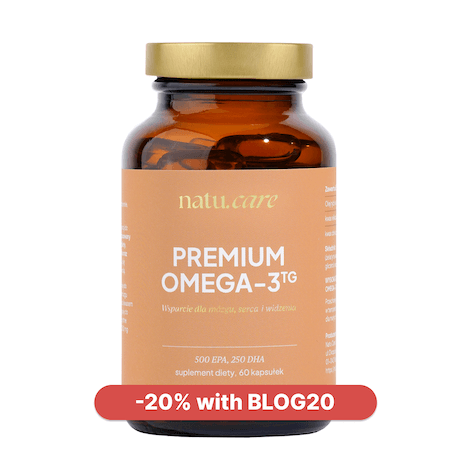Dry skin on the face: causes, creams [how to moisturise the face].
Find out proven ways to treat dry skin.


Learn more about our editorial process
.

Learn more about our editorial process
.

Learn more about our editorial process
.![Dry skin on the face: causes, creams [how to moisturise the face].](https://cdn-resources.natu.care/uploads/1/krem_do_twarzy_hero_ac677d52cd.jpg)
Why you can trust us
Articles on Natu.Care are written based on scientific research, data from government websites and other reliable sources. The texts are written in cooperation with doctors, nutritionists and other health and beauty experts. Articles are reviewed before publication and during significant updates.
.Learn more about our editorial process
.Information about advertisements
Content on Natu.Care may contain links to products from the sale of which we may receive a commission. When creating content, we adhere to high editorial standards and take care to be objective about the products discussed. The presence of affiliate links is not dictated by our partners, and we select the products we review ourselves completely independently.
.Learn more about our terms and Conditions
.It is reactive and unpleasantly tight and sometimes itches and burns. To top it off, most foundations look bad on it - they collect in the creases and accentuate dry skins. Dry facial skin is often uncomfortable.
.
If you have this skin type, the main thing you look for in skincare is... relief. Therefore, in this article, in addition to the causes and symptoms, I will give you tips on how to effectively help yourself in the fight against dry skin. Often small changes can have a big effect.
From this article you will learn:
- What are the symptoms of skuzzy skin.
- What are the symptoms of skin breakouts?
- Why your skin may be dry. .
- What to do to effectively moisturise your complexion.
- What to do to effectively moisturise your skin.
- What symptoms should prompt you to visit a dermatologist. .
- What are some home remedies for dry facial skin.
- What are some home remedies for dry facial skin?
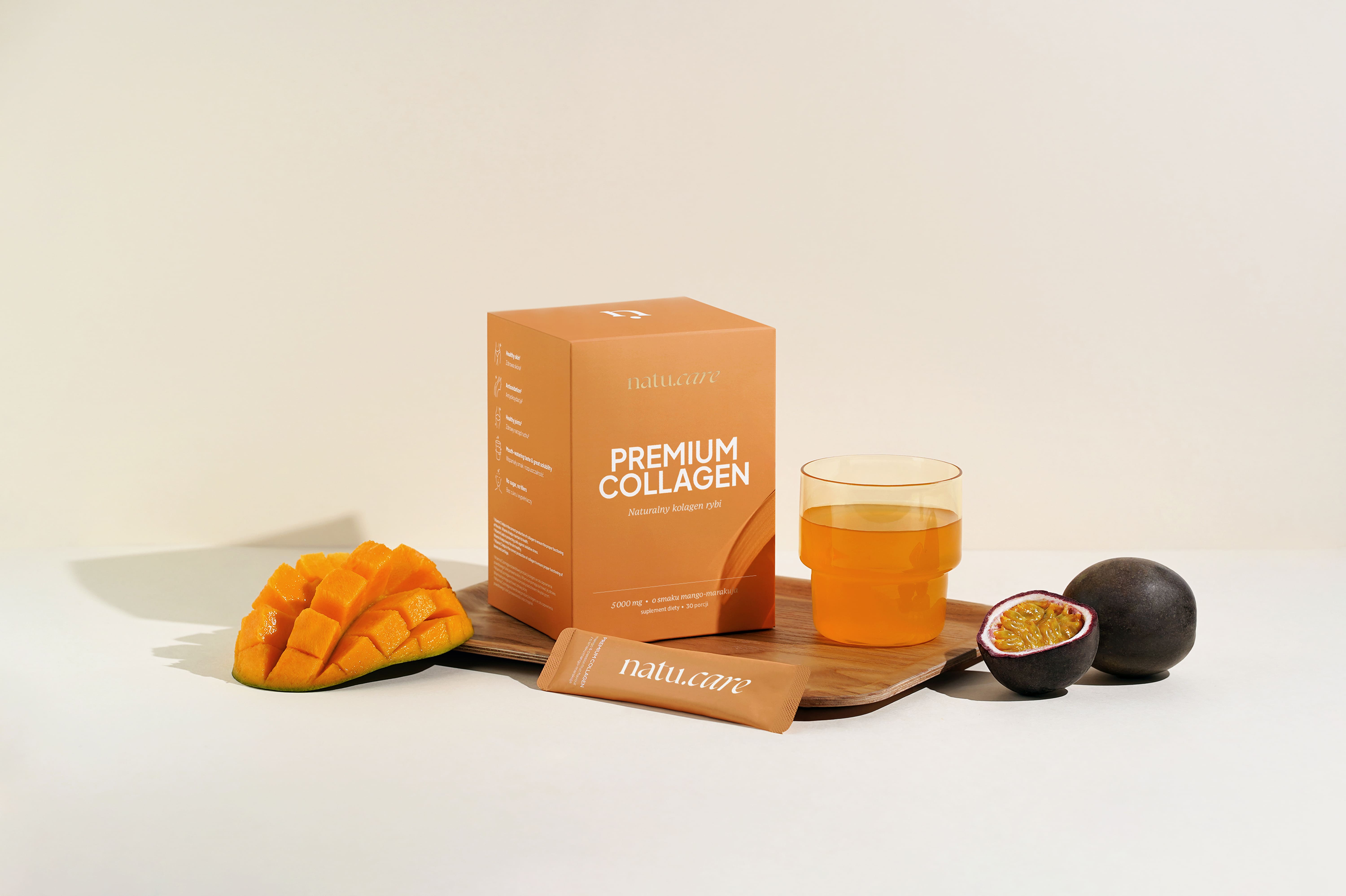
Sprawdź, za co pokochały go tysiące klientek Kolagen Premium 5000 mg, mango-marakuja
Natu.Care Kolagen Premium 5000 mg, mango-marakuja
Natu.Care Kolagen Premium dla zdrowia stawów, skóry, paznokci i włosów. Najlepsza przyswajalność. Optymalna dawka 5 000 lub 10 000 mg. Przebadany przez niezależne laboratorium.
Zobacz więcej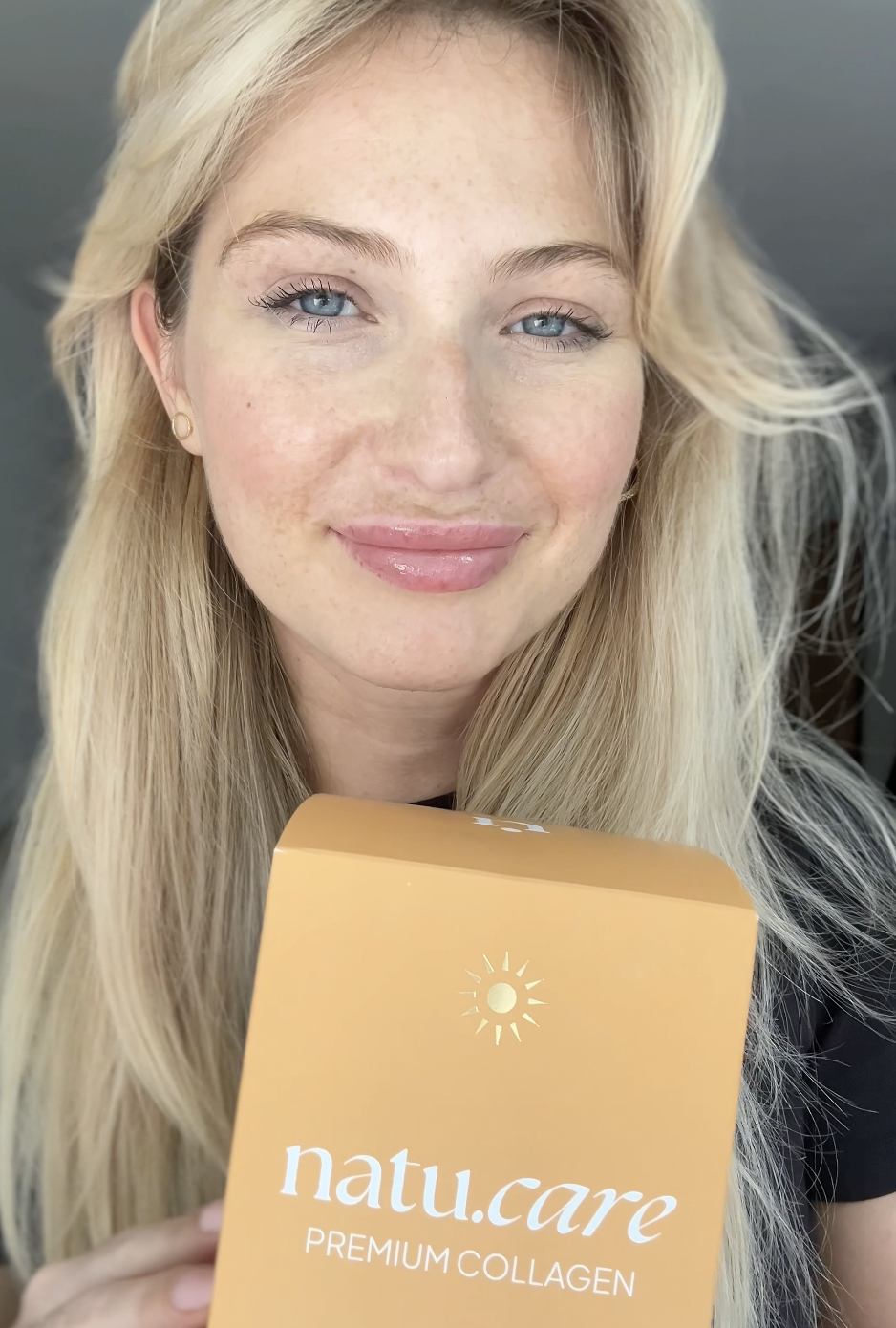
Wybrałam kolagen Natu.Care, ponieważ miał super opinie – a to było dla mnie bardzo ważne! Odkąd go stosuję, moja skóra znacznie się poprawiła i jest nawilżona, a na głowie pojawiły się nowe "baby hair".@Kasia S.
See also:
.
Symptoms of dry facial skin
.
Dry skin feels rough to the touch, often shows dry cuticles, can flake and is prone to redness and irritation. In addition, with dry skin you will be accompanied by a feeling of tightness and even itching or burning - especially after washing your face or going from a cold to a warm room and vice versa, through a severely disrupted hydro-lipid barrierand.
An unpleasant tightening sensation is one of the very characteristic symptoms accompanying dry skin. It usually appears after washing and drying the face and does not go away until you apply skincare products. In people with very dry skin, it can also appear during the day when the skin has absorbed cream and demands more of it.
Dry skin is also often sensitive, as dryness disrupts its natural protective barrier. Because of this, it can also lose firmness and elasticity more quickly, and be more susceptible to the adverse effects of sunlightand.
Dry versus dehydrated skin
.
What exactly is the difference between dry skin and dehydrated skin? When we talk about dry skin, we are referring to its type - the same as oily, combination or vascular skin. It can be said that skin type is a set of skin predispositions and characteristics. It is not necessarily permanent (skin type can change with age), but it is long-lasting.
The phrase 'dehydrated skin', on the other hand, refers to a temporary condition. Any skin type (even oily skin) can be dehydrated due to a variety of factors. It is, however, a transient and short-lived condition if properly addressed.
Dry skin on the face - causes
.
Dry facial skin can be the result of your genetic predisposition, but it can just as well be caused by other factors. These can also exacerbate unpleasant symptoms and aggravate skin dehydrationand.
Atmospheric and environmental conditions
.
Dry skin does not like extremes. Both freezing temperatures and exposure to high temperatures and sunlight can further dry it out .
Remember
.In winter, when you're going to be outdoors, instead of your typical moisturisers, opt for lubricating ones - these will create a protective film on your skin. Moisturising, on the other hand, should only be used at night or on days when you are more likely to be indoors. Sunscreen should be applied all year round.
..
Environmental pollutants and poor air quality can also cause or exacerbate dry skin, as they contribute to the destruction of the skin's hydrolipidic mantleand.
Diseases
.
There are many diseases that can result in dry skin. When something in the body starts to fail, it often takes a toll on the overall functioning of the body - not just limited to one organ or system. Medications used to treat a particular condition, particularly steroids and endocrine-affecting medicinesand can also play a role. Menopause and endocrine disruption are also not insignificant.
Popular conditions that can cause dry facial skin:
.
- disorders thyroid diseases (hypothyroidism, infunction, Hashimoto's disease), .
- skin diseases (eczema, pustacea, AD),
- diabetes, .
- kidney failure, .
- autoimmune diseases, e.g. RA, .
Inadequate care
.
Dry skin can also be fooled by inadequate skin care over a long period of timeand. The pattern is usually similar:
In your teenage years, your skin starts to get oily, so you start using drying and astringent cosmetics that are designed to reduce sebum production. The products that are widely available in popular drugstores and are advertised by manufacturers as being suitable for everyday use are often too strong in practice. And yes - they do have an effect - but only for a while.
The stronger the product, the more effective it is.
The harder you fight sebum, the more the skin tries to produce more of it (to save its protective barrier). So you start to dry it out even more. Auć.
Additionally, it is difficult to catch the moment when the oily skin associated with puberty subsides. For some, this happens even before the age of 20, for others much later. And because over the years you have become accustomed to "having oily/combination skin", you continue to use yourself cosmetics aimed at this skin type.
And completely unknowingly, you are destroying its microbiome and natural protective barrier, leading to the most common skin type change: from oily to dry.
How to moisturise your face?
.
You already know what's responsible for dry facial skin, now see what to do to bring relief to it.
Proper hydration
.
Be sure to stay properly hydrated. Drink water, herbal infusions, freshly squeezed fruit juices, electrolytes, fruit teas (optimally - without sugar)and. Don't be afraid of tea, or coffee, which, contrary to common myths, is not drying.
How much to take in such fluids? A simple rule of thumb is at least 1 ml per 1 kcal of food consumed, plus, extra water on days of increased sweating, so, for example, 2 litres a day for someone who eats 2,000 calories (and an extra 500-1,000 ml around and during training).
Nutrition.
Nutrition is not just about food. With dry skin, it is also mandatory to remember to hydrate. Ideally, the basis of your drinks should be water and fruit teas (optimally - without sugar)and.
Water is life
.The adult body is made up of approximately 65% water. Not surprisingly, it is fundamental to the proper functioning of all organs - including the largest organ, the skin. Without the right amount of water, you won't hydrate your skin, even if you spend half your paycheck on the best cosmetics.
.
Adequate diet
.
Adequate diet is fundamental to caring for dry skin. Providing it with adequate vitamins, minerals, antioxidants -all macro- and micronutrients -will help it regenerate and stay hydratedand.
Enrich your diet with an extra serving of vegetables, fruit, carbohydrates from whole grain sources (they have plenty of B vitamins) and valuable sources of protein. And don't forget healthy fats -these are where vitamins ADEK are dissolved, which are particularly valuable for skin healthand.
Good fats also include omega-3 acids. Research shows that an adequate daily supply of these improves skin hydration and can alleviate symptoms such as roughness and flaking. Omega-3 acids are also recommended for people with dermatoses such as psoriasisand.
These valuable fatty acids will be provided by oily fish such as salmon or mackerel. To ensure you get the minimum omegas you need, you should eat them a minimum of twice a week at around 150g each (so that, in total, you get 300g per week).
If you're not getting the omegas you need, you should eat them at least twice a week.
If you are unable to exceed this standard, you can support yourself with a suitable supplement. Choose a good quality formula with laboratory-confirmed purity and an appropriate daily dose.
Product description
The dietary supplement contains omega-3ᵀᴳ, or omega-3 acids in the form of trójglyceridesów. Scientific studies suggest that this form of fatty acidsós up to 2 times better absorbed than the estersós present in many dietary supplements on the market. This means that you are assured of their effectiveness and of supplying yourself with valuable omega acids.
Fatty acids omega-3 are derived from wild anchovy oil. It is a rich source of healthy fats that are essential for the health of the cardiovascular, immune and nervous systems, as well as the proper function of vision, joints muscles.
Scientific research suggests that wild anchovies are a good source of healthy fats.
Scientific research also suggests that an adequate intake of omega-3 fatty acidsós protects against and supports the treatment of depression and anxiety disorders. In addition, omega-3s influence the hydration and appearance of the skinóry and support healthy sleep.
.
The formula contains a total of 750 mg of EPA+DHA acidsós, which is three times higher than the recommended minimum of 250 mg for the Polish population. Omega-3 TG Premium has studies indicating that its TOTOX is 9, which is a very good result.
Supplementation of omega-3 fatty acidsóis recommended for anyone who does not eat 1–2 portions (approximately 300 g) of oily fish per week. Children during growth, seniors, physically active people, vegans and vegetarians, as well as patients undergoing cardiovascular treatment and prevention of heart disease also have an increased need.
Pros and cons
The dietary supplement contains omega-3ᵀᴳ, or omega-3 acids in the form of trójglyceridesów. Scientific studies suggest that this form of fatty acidsós up to 2 times better absorbed than the estersós present in many dietary supplements on the market. This means that you are assured of their effectiveness and of supplying yourself with valuable omega acids.
Fatty acids omega-3 are derived from wild anchovy oil. It is a rich source of healthy fats that are essential for the health of the cardiovascular, immune and nervous systems, as well as the proper function of vision, joints muscles.
Scientific research suggests that wild anchovies are a good source of healthy fats.
Scientific research also suggests that an adequate intake of omega-3 fatty acidsós protects against and supports the treatment of depression and anxiety disorders. In addition, omega-3s influence the hydration and appearance of the skinóry and support healthy sleep.
.
The formula contains a total of 750 mg of EPA+DHA acidsós, which is three times higher than the recommended minimum of 250 mg for the Polish population. Omega-3 TG Premium has studies indicating that its TOTOX is 9, which is a very good result.
Supplementation of omega-3 fatty acidsóis recommended for anyone who does not eat 1–2 portions (approximately 300 g) of oily fish per week. Children during growth, seniors, physically active people, vegans and vegetarians, as well as patients undergoing cardiovascular treatment and prevention of heart disease also have an increased need.
Additional information
The dietary supplement contains omega-3ᵀᴳ, or omega-3 acids in the form of trójglyceridesów. Scientific studies suggest that this form of fatty acidsós up to 2 times better absorbed than the estersós present in many dietary supplements on the market. This means that you are assured of their effectiveness and of supplying yourself with valuable omega acids.
Fatty acids omega-3 are derived from wild anchovy oil. It is a rich source of healthy fats that are essential for the health of the cardiovascular, immune and nervous systems, as well as the proper function of vision, joints muscles.
Scientific research suggests that wild anchovies are a good source of healthy fats.
Scientific research also suggests that an adequate intake of omega-3 fatty acidsós protects against and supports the treatment of depression and anxiety disorders. In addition, omega-3s influence the hydration and appearance of the skinóry and support healthy sleep.
.
The formula contains a total of 750 mg of EPA+DHA acidsós, which is three times higher than the recommended minimum of 250 mg for the Polish population. Omega-3 TG Premium has studies indicating that its TOTOX is 9, which is a very good result.
Supplementation of omega-3 fatty acidsóis recommended for anyone who does not eat 1–2 portions (approximately 300 g) of oily fish per week. Children during growth, seniors, physically active people, vegans and vegetarians, as well as patients undergoing cardiovascular treatment and prevention of heart disease also have an increased need.
Expert opinion
The dietary supplement contains omega-3ᵀᴳ, or omega-3 acids in the form of trójglyceridesów. Scientific studies suggest that this form of fatty acidsós up to 2 times better absorbed than the estersós present in many dietary supplements on the market. This means that you are assured of their effectiveness and of supplying yourself with valuable omega acids.
Fatty acids omega-3 are derived from wild anchovy oil. It is a rich source of healthy fats that are essential for the health of the cardiovascular, immune and nervous systems, as well as the proper function of vision, joints muscles.
Scientific research suggests that wild anchovies are a good source of healthy fats.
Scientific research also suggests that an adequate intake of omega-3 fatty acidsós protects against and supports the treatment of depression and anxiety disorders. In addition, omega-3s influence the hydration and appearance of the skinóry and support healthy sleep.
.
The formula contains a total of 750 mg of EPA+DHA acidsós, which is three times higher than the recommended minimum of 250 mg for the Polish population. Omega-3 TG Premium has studies indicating that its TOTOX is 9, which is a very good result.
Supplementation of omega-3 fatty acidsóis recommended for anyone who does not eat 1–2 portions (approximately 300 g) of oily fish per week. Children during growth, seniors, physically active people, vegans and vegetarians, as well as patients undergoing cardiovascular treatment and prevention of heart disease also have an increased need.
Creams for dry skin
.
A good moisturiser is a must have for dry skin. When choosing a moisturiser, opt for a product that, in addition to moisturising, also has soothing properties and promotes the restoration of the hydrolipidic barrier. Cosmetics with ceramides and peptidesand.
will provide you with such action.
Dry skin creams don't have to be greasy and form a film on the skin at all - you can easily find gel equivalents.
These substances will help regenerate the skin's protective barrier and take care of its microbiome. This, in turn, will prevent excessive water loss from the epidermis and drynessand.
Remember, it is crucial for you to rebuild and care for the hydrolipid barrier.
.
Soothing ingredients will instead help to soothe irritation and redness and provide relief from astringent sensations.
Care for your skin.
What to look for in creams for dry skinand?
. .
Glycerin.
|
Engredients . |
Action . |
|||
| . | . |
Hydrates, retains water, fills and regenerates the epidermis. |
||
|
Aloe vera |
Hydrates, soothes, is an antioxidant, anti-inflammatory. Note: may irritate extremely sensitive skin. |
|||
|
Glycerin . |
Hydrates, retains water, soothes. |
|||
|
Urea (in concentrations below 10%) . |
Hydrates, softens, aids regeneration. |
|||
|
Lactic acid (at a concentration of less than 10%) |
Lactic acid. |
Hydrates and prevents water loss. |
||
|
Propanediol . |
Prevents water loss from the epidermis and facilitates the penetration of other active substances into the epidermis. |
|||
|
D-Panthenol . |
Sooths, reduces irritation and redness, promotes skin regeneration.
|
D-Panthenol |
Sooths, reduces irritation and redness, promotes skin regeneration. |
|
|
Alanthoin . |
Reduces itching, burning and redness. |
|||
|
Temporal water |
Provides minerals to the skin, soothes redness and irritation. |
|||
|
Bisabolol . |
Sooths and reduces irritation. |
|||
|
Rumy |
Acts as an anti-inflammatory, soothes, reduces flaky skin. |
Ruminant. |
||
|
Squalane . |
Hydrates and regenerates the skin. |
Vitamins, antioxidants, micronutrients and macronutrients will also be valuable in dry skin care products, which will nourish the skin and speed up its recovery processes.
Vitamins and antioxidants for dry skin class=
.
Vitamins and antioxidants for dry skinand:
- vitamin A, .
- vitamin E, .
- B vitamins (e.g. niacin, biotin), .
- coenzyme Q10, .
- polyphenols, .
- ferulic acid, .
- sulfur, .
- zinc, .
- copper,
- magnesium,
- selenium, .
Among the ingredients in creams that moisturise well can also be mentioned collagen. Usually, however, manufacturers of cosmetics with this protein advertise them as anti-wrinkle and improving skin firmness.
Unfortunately, collagen in a cream is unlikely to work like this, as it will not penetrate the deeper layers of the skin. And it is there that the collagen fibres are found, which need to be rebuilt. If you want to benefit from its rejuvenating properties, you'd better choose a dietary supplement and get this protein into your body from the inside out.
Natu.Care Collagen Premium 5000 mg, mango & passion fruit

- Collagen content: 5000 mg marine collagen hydrolysate
- Additional active ingredients: vitamin C, low molecular weight hyaluronic acid (and L-theanine and coenzyme Q10 in cocoa flavoured collagen or vitamin A and vitamin E in mango–passion fruit flavoured collagen)
- Form: powder sachets
- Dose: 1 sachet per day
- Sufficient for: 30 days
Product description
Fish collagen from the Natu.Care brand in a dose of 5000 mg, based on certified ingredients of the best quality. Regular supplementation will positively influence the appearance of the skinóry, hairów and nails – they will be rebuilt and strengthened from the inside.
In addition to collagen, which is valuable for health and beauty, it also offers other active ingredients that help to maintain a youthful complexion, shiny hair and strong nails.
The formula contains a sufficient portion of the active ingredient to positively affect joints, the musculoskeletal system and immunity.
Natu.Care Premium Collagen is available in two flavours – Cacao Bloom and Rise&Shine. Both formulas are based on the following active ingredients: marine collagen hydrolysate, wild roseóbud extract and hyaluronic acid.
Additionally, Cacao Bloom contains natural L-theanine, coenzyme Q10 and defatted Dutch cacao. Rise&Shine instead contains vitamin E and vitamin A.
These are the best collagens in the world.
These best fish collagens on the market also rós taste – Cacao Bloom is a treat for chocolate lovers. Rise&Shine will appeal to those whoólike the refreshing taste of mangoófruit and passion fruit.
Pros and cons
Pros:
- Vitamin C supports the body's collagen production, enhancing its effectiveness.
- An effective dose of hyaluronic acid, which additionally supports skin hydration and joint health.
- Fish collagen absorbs 50% better. Additionally, the manufacturer specifies the fish species it is sourced from (Atlantic cod).
- The composition has been tested by the independent and accredited J.S. Hamilton laboratory.
- MSC (Marine Stewardship Council) quality certification, which confirms that the collagen source supports sustainable fishing practices.
Cons:
- None.
Additional information
Natu.Care's fish collagen receives praise for its delicious taste. You won't find the fishy aftertaste that often comes through in other collagens. Plus, you have two tasty flavors to choose from: cocoa and mango-passionfruit.
Active ingredients like coenzyme Q10, hyaluronic acid, and natural L-theanine provide anti-inflammatory and antioxidant benefits while slowing down aging processes.
User review
Super, after about 6 weeks of use, the skin on my face became noticeably firmer. Wonderful taste.
Ania ZalewskaNatu.Care customer
Dry skin care
.
Dry skin care should first and foremost be gentle and directed at restoring the skin's protective functions.
Start with the right choice of cleansing cosmetics. Opt for gentle lotions, emulsions and foams. The easiest way to find a gentle product that respects your skin's pH and won't irritate you is by the fact that... it won't pinch your eyes. And when you rinse it off, your skin won't be severely tightened.
After washing, it's a good idea to apply a moisturising hydrolyte to soothe the first tightening sensation after water contact and to tone the skin. A moisturiser based on lotus flower or aloe vera, for example, will have a strong moisturising effect. Damask rose preparations are recommended for redness-prone skin.
If your skin likes and tolerates multi-step care well, now is the time for serum. In this cosmetic, bet on similar ingredients to the cream, but focus on a specific action - moisturising.
Next in line is cream. The ideal daytime beauty product should leave you feeling moisturised and soothed, and protect your skin from harmful external factors such as pollution and weather conditions.
The ideal daytime beauty product should be able to keep you hydrated and soothed, and protect your skin from harmful external factors such as pollution and weather conditions.
Pro tip
Going skiing or planning to spend time in the great outdoors? Instead of your typical daytime moisturiser, opt for this oily cream to protect your skin from the cold weather.
Finally, when the appropriate skincare cream has had time to absorb well (usually after 10-15 minutes), protect your skin with a UV filter cream. Use this protection all year round - even on cloudy days.
Radiation, which is responsible for the skin's accelerated ageing process and destroys collagen, can penetrate clouds and even... glass. Just because you can't see or feel it doesn't mean it doesn't affect you. Protect yourself against it with cosmetics with SPF protection.
.
Very dry facial skin - when to see a doctor?
.
Any time you suspect dehydration or dry skin, you can visit a dermatologist. A specialist will help you determine whether you are dealing with dehydration or a dry skin type.
A visit to the doctor will absolutely require persistent erythema. Redness on the face can be a sign not only of dry skin, but also of more serious conditions, such as rosacea.
Other symptoms that may be indicative of dermatoses includeand:
.
- swelling, .
- skin cracking, .
- scrubbing of the epidermis, .
- intense burning and itching,
- inflammation of the skin,
- dermatitis.
- skin lesions in the form of red spots and small pustules, .
Home remedies for dry facial skin
.
In addition to cosmetics available on shop shelves, homemade masks as well as natural oils can help you take care of dry skin. Remember, however, that they too can irritate or cause allergic reactions. Use them with caution and treat them more as an adjunct to specialised care.
Homemade mask for dry skin
.
Preparing a homemade mask is very simple. Simply throw the selected ingredients into a blender and blend to a smooth slurry.
What foods will work to moisturise?
- avocado, .
- oatmeal, .
- natural yoghurt, .
- cream, .
- honey (warning: may be irritating), .
- olive oil, .
- apple, .
- banana, .
- yolk, .
To prepare the mask, simply choose two or three ingredients from the list above and combine them well together. Then apply the mixture to your face and wait 15-20 minutes, then rinse thoroughly.
Dry skin oils
.
As a fan of natural cosmetics, I couldn't help but mention oils here, which work well for dry skin. You can also look for them in the ingredients of other skincare products.
Oils and oils that work best for dry skin:
.
- macadamia, .
- coconut, .
- arganic, .
- jojoba, .
- raspberry seed, .
- from avocado, .
- from pumpkin seeds, .
- from hazelnuts, .
- from grape seeds, .
- from rosehip seeds, .
Every skin is different, so in order to choose the product that will work best for you, you need to test and try. Many manufacturers allow you to buy samples of their formulations, before deciding to invest in a full-size product. Good stationary drugstores also often make samples available for testing.
This is a great option to start with, as full-size oils and oils are usually very powerful and take a really long time to use up. By using samples, you can choose the formulation that will give you the best results.
It's a great way to get started.
From experience, I would add that using oils with dry skin - especially long-term - does more harm than good. The basis, however, should be hydration, a healthy diet and quality, well-chosen cosmetics..
 .
.
Marta Majszyk-Swiatek cosmetologist, technologist and Safety Assessor
Noticed oil?
.You've bought it and... you've missed it. Oil clogs your pores or leaves an unpleasant film on your skin? You don't have to throw it away. Try using it to oil your hair or apply it to other areas of your skin. As a last resort, most oils will work for your fingernails and toenails.
Summary
.
- Dry facial skin often manifests itself with a feeling of tightness, itching and burning. It may also be accompanied by redness and flaking of the epidermis.
- Dry skin is often accompanied by a feeling of tightness, itching and burning.
- Dry skin can be the result of a genetic predisposition, disease, the effects of certain medications and long-term improper care. Dry skin can also be aggravated by weather conditions and environmental pollutants.
- Basic to caring for dry skin should be a nutritious diet and drinking adequate amounts of water. .
- Moisturising dry facial skin can be helped by creams and cheeses rich in moisturising ingredients and appropriate, gentle skin care.
- Dry skin can also be treated with a moisturiser.
- Long-lasting erythema and other worrying symptoms such as cracking of the skin or intense itching or burning are a signal to see a dermatologist as soon as possible. .
- Home-made masks or natural oils can also help with dry skin. .
FAQ
.What is missing from the body when the skin is dry?
.When your skin is dry, it may mean that you are not drinking enough water throughout the day. In addition, a deficiency of fats in your diet or a disruption in sebum production can lead to a loss of moisture and dry skin.
To improve skin hydration, it is essential to drink water regularly and to have a diet rich in healthy fats such as omega-3 fatty acids. Using moisturising creams will also help to maintain adequate moisture levels in the skin. If you have an ongoing problem with dry skin, it is worth consulting your doctor to rule out any other causes.
With which diseases does the skin feel dry?
.Diseases such as atopic dermatitis, psoriasis, diabetes, systemic lupus, hypothyroidism and autoimmune diseases can lead to skin problems such as excessive dryness. Dry skin can also be caused by medications taken to treat other diseases.
How to moisturise your face without a cream?
.First and foremost, pay attention to drinking enough water and other fluids throughout the day. Without proper hydration from the inside out, you won't get an improvement, even if you use the best cosmetics.
If your skin doesn't like creams and you want to moisturise it, use hydrolat. This product has a watery consistency and will certainly not clog your pores. You can also opt for a highly moisturising serum, which will also have a lighter formula than a cream.
What to eat to moisturise your skin from the inside out?
.To hydrate the skin from the inside out, it is recommended to eat foods rich in omega-3 fatty acids, which help keep the skin hydrated. Foods such as salmon, flaxseed, walnuts and avocados are great sources of these fatty acids.
Additionally, it is important to drink enough water to ensure that the skin is adequately hydrated from within. Vitamin E-rich foods such as almonds, sunflower oil and spinach also help to maintain healthy, hydrated skin.
Providing the right amount of water is important.
Providing the right balance in your diet to include healthy fats, vitamins and adequate fluids can significantly improve skin hydration and overall skin health.
Which cream for very dry facial skin?
.Look for creams that contain ingredients such as hyaluronic acid, glycerin, ceramides or shea butter to help moisturise and regenerate the skin. Creams containing vitamins such as E, C and A, which promote skin regeneration and prevent moisture loss, can be an excellent choice.
Please remember to avoid products containing alcohol, fragrances or parabens, which can irritate and dry out the skin. Check ingredients and reviews before purchasing to choose the right cream for your skin.
What does dry skin indicate?
.Dry skin can be a sign of insufficient hydration or problems with the functioning of the sebaceous glands. It can be the result of inadequate water intake, overexposure to the elements, the use of aggressive cleansers or health problems such as psoriasis or hypothyroidism.
What moisturises the skin strongly?
.Cosmetics containing hyaluronic acid are effective in moisturising because they have hygroscopic properties, i.e. they bind water in the epidermis. In addition, you can try natural vegetable oils, such as coconut oil, jojoba oil or almond oil.
These are rich in moisture.
These are rich in nutrients, such as vitamins and fatty acids, which are great for moisturising the skin.
Shea butter and cocoa butter are also excellent moisturisers, as they contain vitamins E and A, which help to regenerate the skin and retain moisture.
Sources
.See all
.Amin, R., Völzer, B., Genedy-Kalyoncu, M. E., Blume-Peytavi, U., & Kottner, J. (2023). The prevalence and severity of dry skin and related skin care in older adult residents in institutional long-term care: A cross-sectional study. Geriatric Nursing, 54, 331-340. https://doi.org/10.1016/j.gerinurse.2023.10.032
Aoki, M., Hata, N., & Yotsuya, J. (2023). Effectiveness of Three Types of Moisturizers on Senile Dry Skin: A Randomized Controlled Pilot Trial. Dermatology Research and Practice, 2023, e1809109. https://doi.org/10.1155/2023/1809109
Dry Skin | American Skin Association. (n.d.). Retrieved March 4, 2024, from https://www.americanskin.org/resource/dryskin.php
Dry skin: Overview. (n.d.). Retrieved March 4, 2024, from https://www.aad.org/public/diseases/a-z/dry-skin-overview
Dry Skin-An overview | ScienceDirect Topics. (n.d.). Retrieved March 4, 2024, from https://www.sciencedirect.com/topics/medicine-and-dentistry/dry-skin
Hahnel, E., Blume-Peytavi, U., & Kottner, J. (2019). Associations of dry skin, skin care habits, well-being, sleep quality and itch in nursing home residents: Results of a multicentre, observational, cross-sectional study. Nursing Open, 6(4), 1501-1509. https://doi.org/10.1002/nop2.351
Murphy, B., Grimshaw, S., Hoptroff, M., Paterson, S., Arnold, D., Cawley, A., Adams, S. E., Falciani, F., Dadd, T., Eccles, R., Mitchell, A., Lathrop, W. F., Marrero, D., Yarova, G., Villa, A., Bajor, J. S., Feng, L., Mihalov, D., & Mayes, A. E. (2022). Alteration of barrier properties, stratum corneum ceramides and microbiome composition in response to lotion application on cosmetic dry skin. Scientific Reports, 12(1), Article 1. https://doi.org/10.1038/s41598-022-09231-8
Proksch, E., Berardesca, E., Misery, L., Engblom, J., & Bouwstra, J. (2020). Dry skin management: Practical approach in light of latest research on skin structure and function. Journal of Dermatological Treatment, 31(7), 716-722. https://doi.org/10.1080/09546634.2019.1607024
.
Editorials
Meet the team

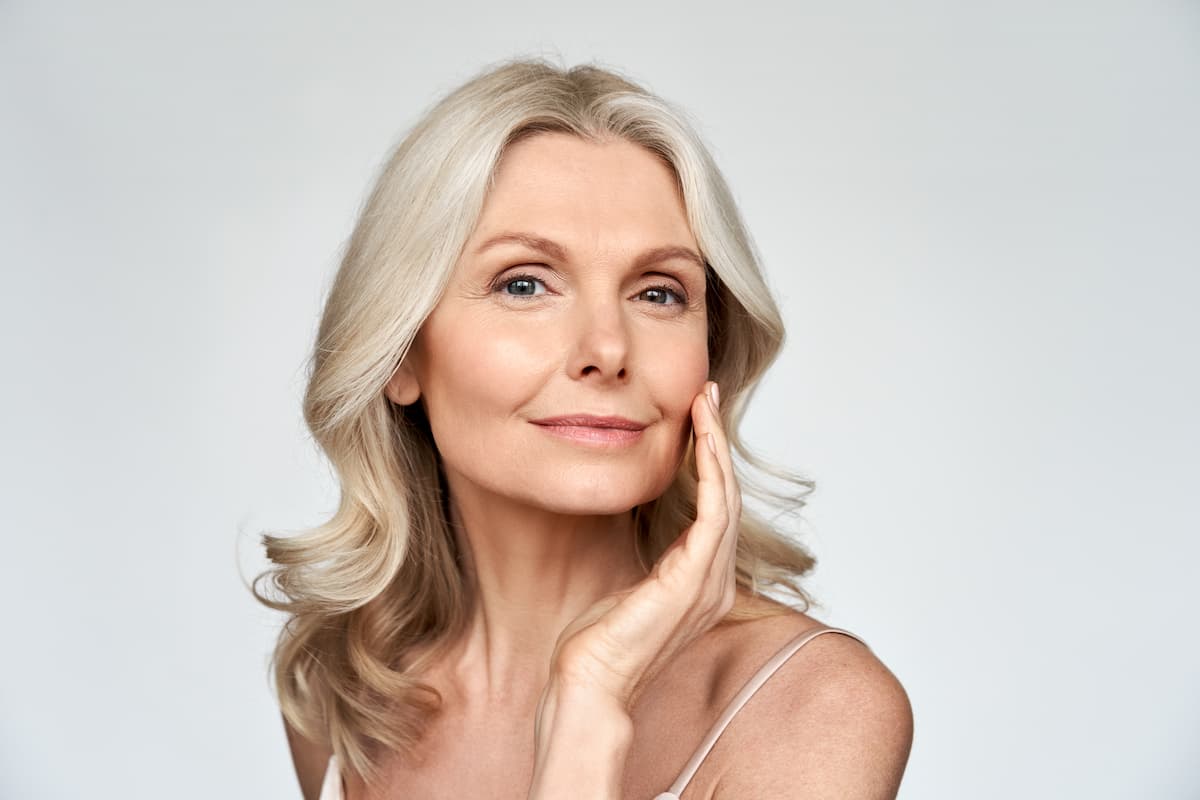
See how to stop the passing of time. That is, the best ways to get rid of wrinkles.
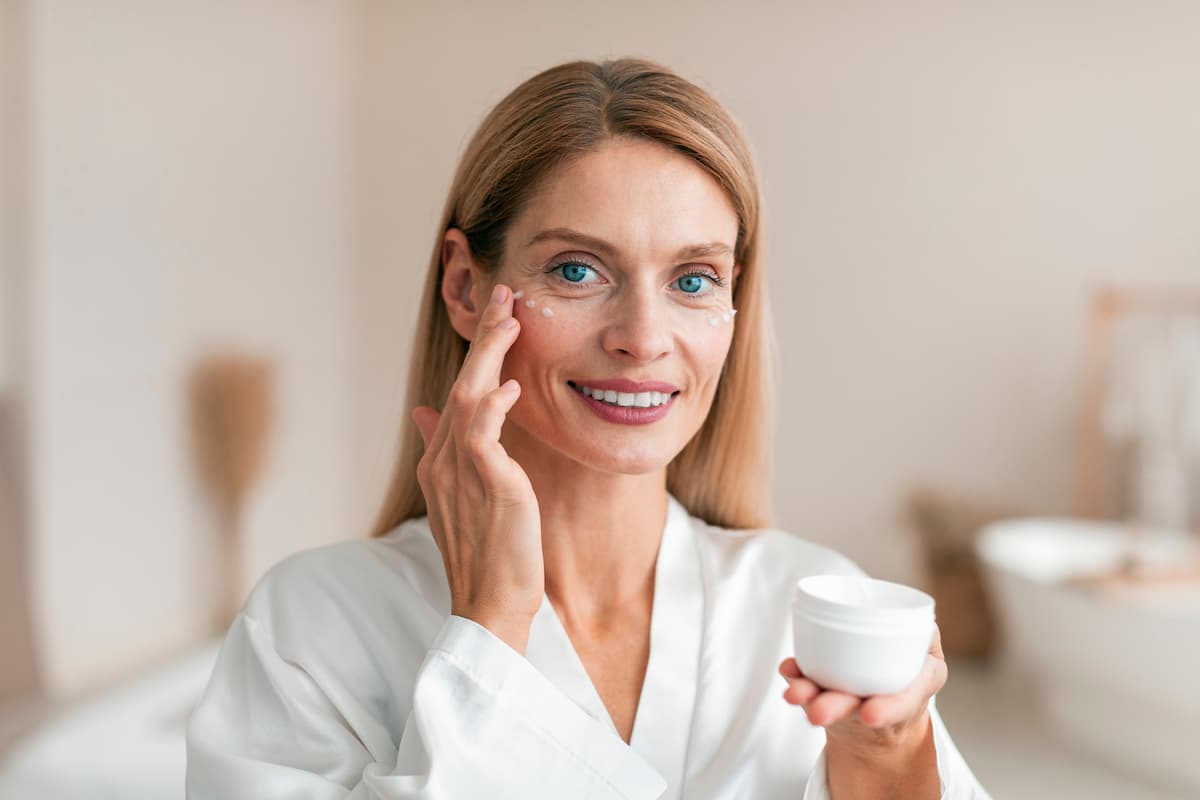
Read about effective methods to combat wrinkles around the eyes.
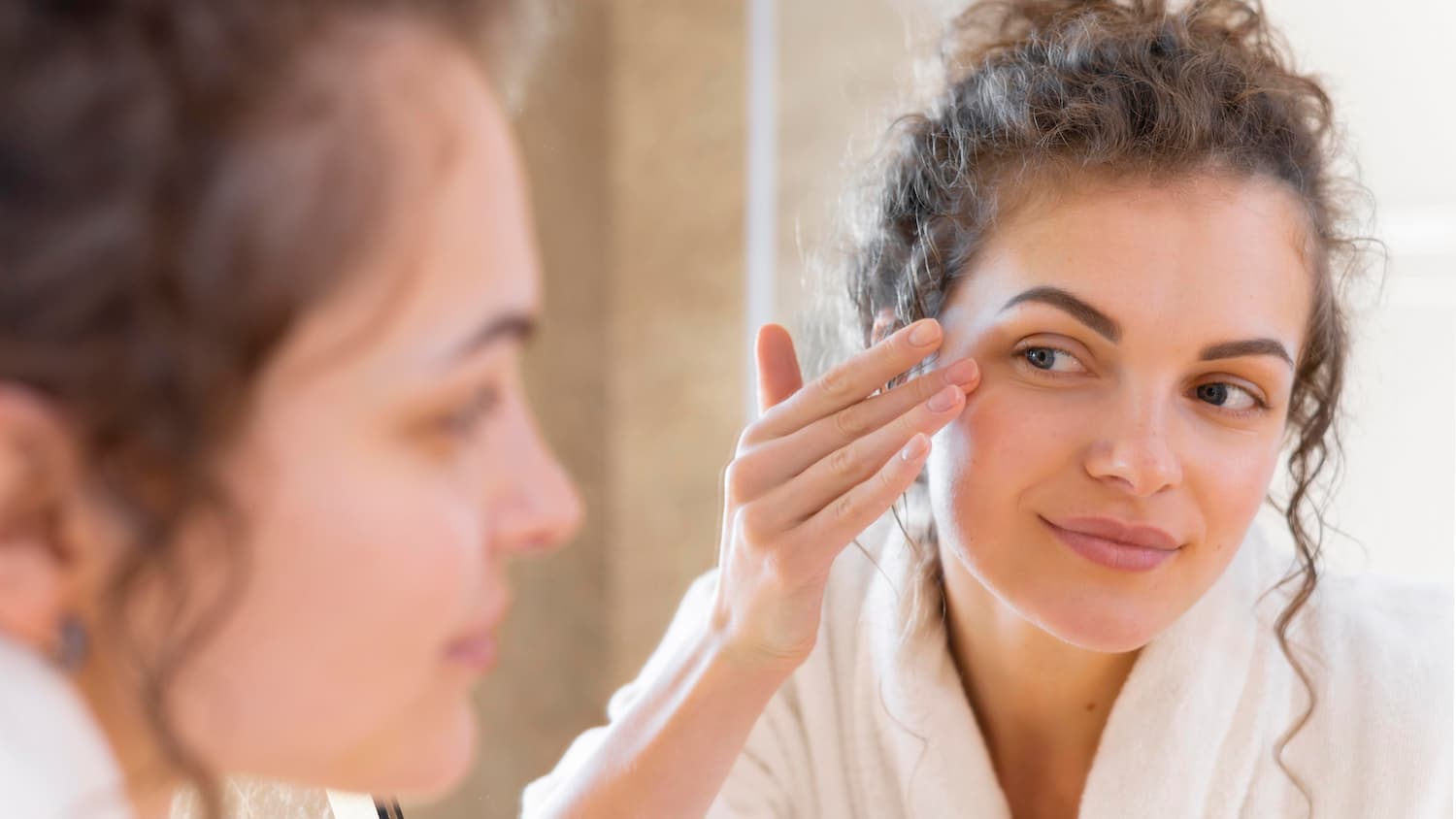
While this is a normal effect of passing time, there are ways to visually reduce it.
